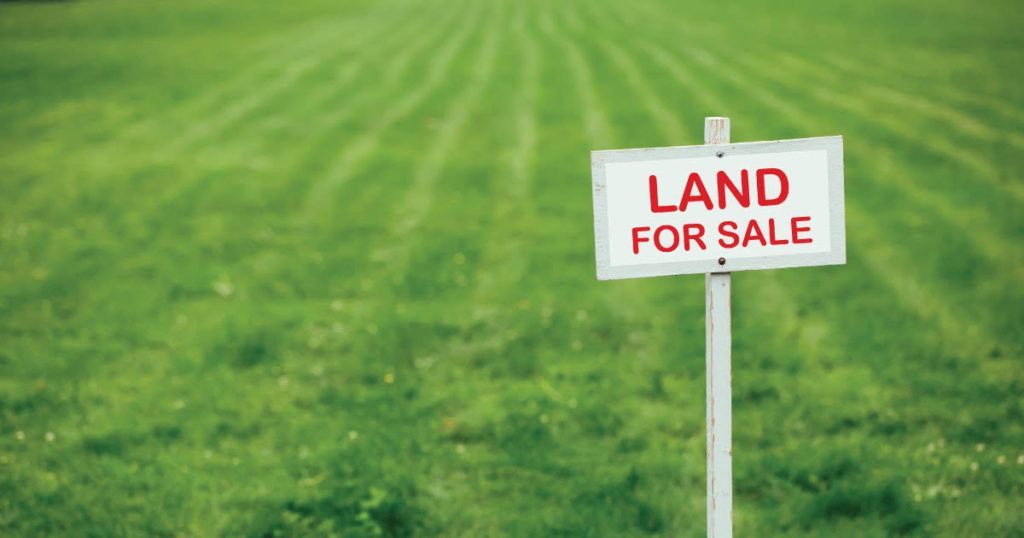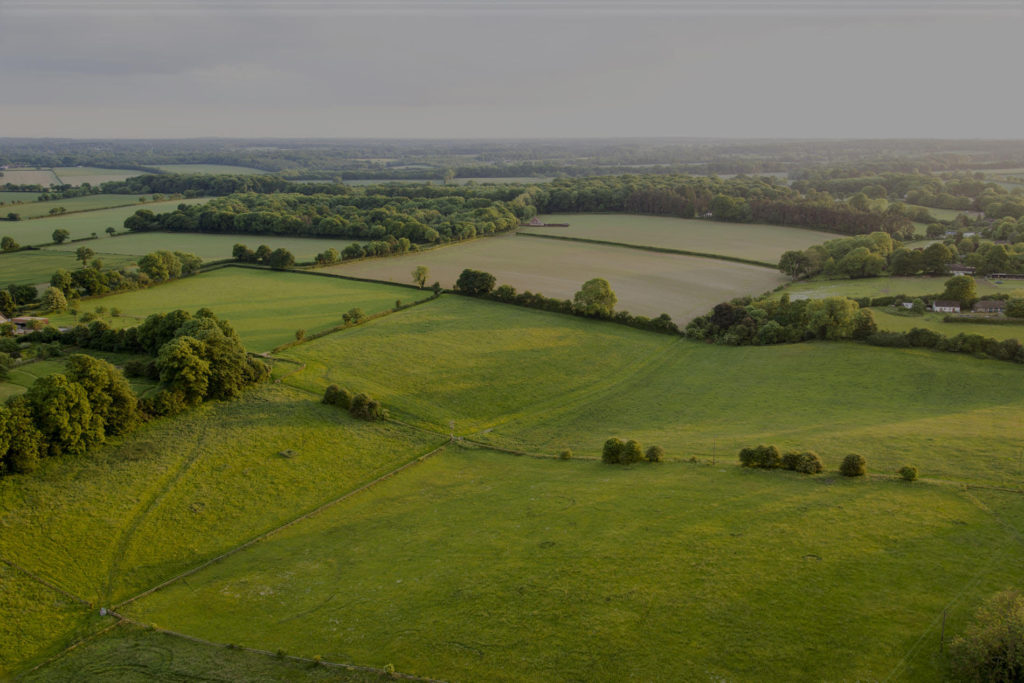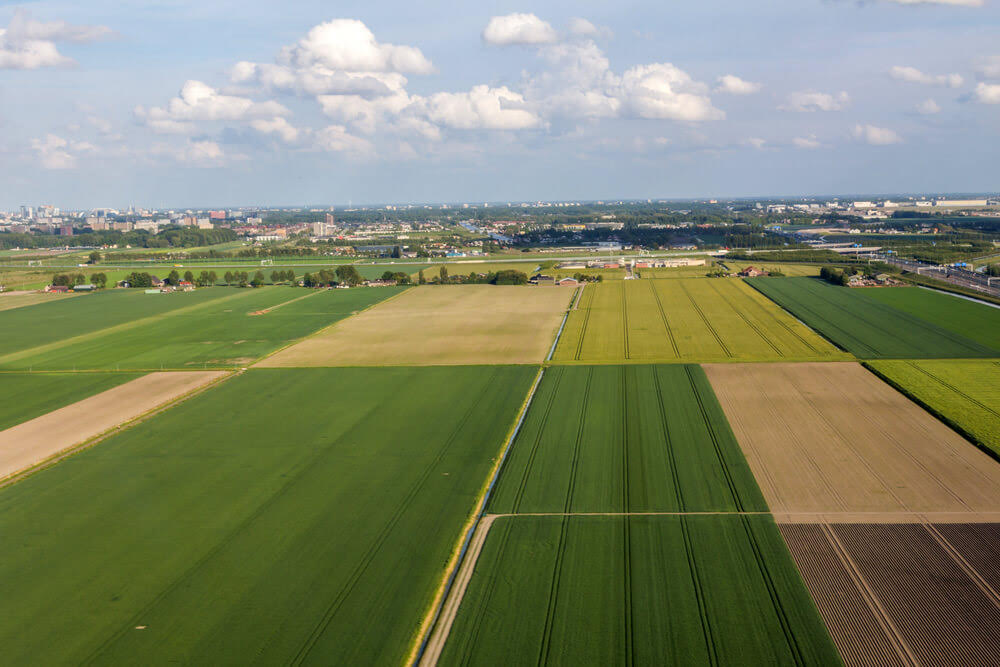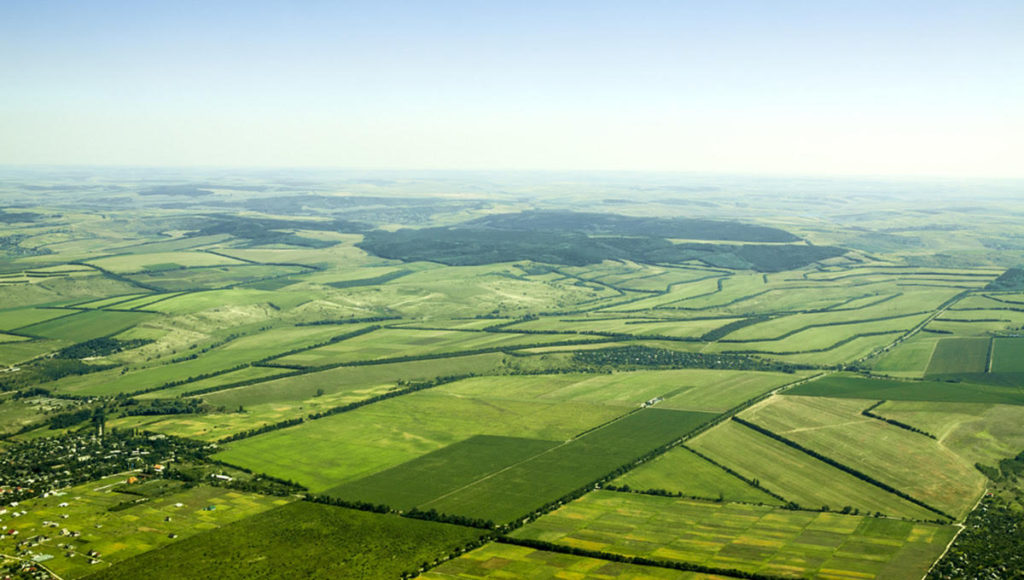
At Finance Friday, I try to talk as much about real estate investing as I know about. The majority of my articles pertain to investing in residential properties, but never land. This got me thinking should you invest in land?
Whilst there are several different types of land, all being used for different purposes and investments, for the purposes of this article I’m going to cover raw land only.
However, what you may (or may not) choose to do with the raw land after you’ve bought it, is completely up to you!
Reasons to Invest in Land
There are several reasons why you should invest in land, these include:
There’s Very Little Competition
If you’ve ever tried your hand at real estate investing, especially buying residential or commercial real estate, you’ll know that it’s really competitive. However, the same can’t be said for investing in land.
When you look at the most famous real estate investors, the vast majority tend to own solely residential and commercial properties. They almost never own any form of land, and have rarely ever done so!
As such, most other real estate investors tend to invest solely in residential and commercial properties. This has seen raw land be neglected by the real estate investing community as a whole.
Many of them simply don’t believe it’s worth the time and/or money (for various different reasons). Others, have simply never thought about it, so have never pursued the idea.
Their loss is your gain! Assuming you (personally) believe it is worth it, you will rarely be outbid for a plot of land. And the rare times that you are, it is usually only by a few hundred dollars, and is quickly resolved.
It’s Really Cheap

A quick Google search of “land for sale in [insert place]” yields hundreds of results. For the most part, land is extremely cheap, at least considering the price of houses and other types of real estate.
I decided to Google “land for sale near me” which yielded numerous results, most of which were several acres/hectares, with some being as little as $5,000. And I live in a somewhat expensive area (at least compared to the rest of the UK!)
This is mostly due to there being very little competition. And as they say, if there isn’t high demand, there aren’t high prices. Raw land in particular shows this extremely well!
As such, if you want to buy land, even with lawyer’s fees, you’ll pay relatively little for the large amount of land it is. This allows you to net large profits with whatever you plan to do with it!
You Can’t Destroy it
If you’ve ever had a really bad tenant, you’ll know that if you don’t play your cards right, they’ll trash the place out of spite, once they leave. For most real estate investors, this is costly and forces them to renovate every few years.
However, the same cannot be said for land. Due to the nature and purpose of land, it is extremely difficult (if not impossible) to destroy land, at least in any meaningful and long lasting way.
Your tenant could set light to it, shoot it, or have a frat party on it. With a new bag of dirt, a few hours of cleaning, and a few plants from your local Walmart plant section (or garden center!)
As such, it is very easy to flip your tenants, with you often being able to do it in a matter of days, even if the land has been trashed. This minimizes the loses you would’ve gotten had you invested in other types of real estate.
Thanks to this, land has become more popular in recent years as a way for real estate investors to diversify their portfolios.
Flexibility
Office buildings, apartments and commercial spaces only really have one purpose- the one that they were designed for. Land on the other hand, doesn’t have that same issue, it can be used for almost anything!
Assuming you get all of the right permissions and licenses, you could build anything on your land. This could be anything from a series of houses to a hotel, to a mall to an apartment building.
If building isn’t your thing, you can rent it out for specialist events. Assuming its large enough, car shows and motorbike shows may be interested in renting your land for a weekend or two of the year.
Depending on the size of the land and where it is located, you could also offer the land as storage. Many small car traders are constantly looking for places to store their stock, and often look for large plots of land for this purpose.
Many of my friends who have invested in land have done so in order to create static caravan parks, especially on land near the beach! All they have to do is install electric and water (and the caravans) and sell them off!
Low Costs
When you think about investing in real estate, you often have several worries, mostly to do with maintenance. For example, if the wiring in the house causes the electric to stop working, the landlord has to put it right.
This is generally why most landlords charge a deposit on the property before you can rent it. Most landlords also have landlord insurance as well as being subject to very high capital gains taxes.
However, the same is not really so for investing in land. For the most part, raw land taxes are extremely cheap, with several acres costing relatively little compared to a several acre home.
On top of this, there are maintenance or utility bills that you may end up being liable for. At the same time, there are rarely mortgage payments to pay (due to how cheap raw land generally is!).
Due to this, land is rarely the subject of property insurance, and when it is, it is extremely cheap, even more so when compared to houses! This has all helped to make the prospect of investing in land much more popular.
Reasons Not to Invest in Land
Despite this, there are several reasons why you should not invest in land. This includes:
Only Limited Buyers
Whilst less competition may be great for you as a buyer, it’s a pain when it comes to selling! Do you remember earlier when I told you about me look at land for sale near where I live?
One thing I didn’t mention that there were very mixed results. Many of the pieces of land I saw had been put on the market relatively recently (within the past month or so).
However, many more had been on there for well over six months and even a year! In particular, one of the pieces of land I saw had been on the market for almost three years (around two and three quarter years!)
Whilst this may say more about those particular properties, there is also one other explanation: a lack of buyers. As with everything else, land costs money to buy, and investors only have so much money.
There is rarely enough investors, with enough money to buy all the land up for sale. As such, there’s no guarantee that they’ll be able to buy your property, even if they really want it.
Hard to Get Loans

Do you remember earlier when I said raw land was really cheap, and you wouldn’t need to get a loan? Well, there’s also a completely different reasons why it’s so cheap: the banks.
When you take out a loan or a mortgage, generally the institution lending you the money want to know what the money will be used for. Most commonly, it’s for something like a new house or an extension etc.
However, when you say that you’re going to use it to buy land (not land to build properties on them), your chances of approval drop dramatically. This makes it hard, even for those with good credit histories, to get financing.
This is due to the bank’s view of land, mainly that it isn’t worth that much. You see, the bank is worried about what will happen if you default, and what they can take in order to recoup some or all of the loan.
However, because there isn’t the market for land as there is for say, residential real estate. As such, they’d rather give their money to someone buying something they’re familiar with, than something they aren’t familiar with.
Land Doesn’t Mean Farmland
When you talk about investing in raw land, many people get the instant assumption that by raw land, you mean farmland. However, both are extremely different and have vastly different uses.
Generally, farmland is considered to be a multiacre plot of land that can be used for agricultural purposes- growing crops and/or as animal pens. As the name would imply, the land is often owned/tended to by farmers.
On the other hand, raw land is only a small amount of land (usually between one and two acres). Generally, this land is ill-suited for agriculture, either because it is too small or because it is too close to something else.
Due to this, if you were planning to buy raw land and rent it out to farmers, you’re out of luck. Most of them will flat out refuse. Many more will probably laugh at you for making that offer as well!
However, this land is (usually) safe for building on. It’s normally just a matter of getting planning permission from your local authorities in order to do so!
Tax
I am going to assume that you aren’t forming some sort of real estate holdings company. However, if you are doing this beforehand or have already previously formed one, this is somewhat different.
Assuming that you’ve not formed a holdings company, you’ll find it rather difficult to deduct expenses from your tax report. Even if you operate as a sole proprietorship, and therefore as a business, you can’t deduct these things.
In laymen’s terms, whatever you spend on the land, whether that’s $50 per month for a kid to mow the lawn and/or the $1,000 for planning permission, you can’t deduct from your tax report.
Essentially, you are paying a higher amount in tax, perhaps even entering a higher tax bracket, when you otherwise wouldn’t be. With that being said, a corporation will be able to do these things (for the most part).
On top of this, when/if you sell the land for a profit, you will also be liable for capital gains taxes. However, this is the same with almost all types of investments!
Lawsuits
When it comes to investing in real estate in general, this fact is often overlooked. However, whilst you may be able to pass blame off if you own residential or commercial real estate, you can’t do it with land.
If you invested in a rental property, which you were currently renting out, it is generally seen as the tenant’s issue, not yours. If the real estate is being used as a place of business, the rules are completely different!
If someone injures themselves on land you own, you may be liable for their medical bills. If they ask, and you refuse point blank, they are within their legal rights to file a lawsuits against you.
Naturally, this is something as investors that we are keen to avoid, as these never tend to go our way. On top of this, opposition lawyers may try to twist our defenses against us, or bring up things from our past in order to embarrass us.
Should You Invest in Land?

As I have said when I have talking about investing in bonds and investing in gold, there is no clear cut answer.
For the most part, most professional real estate investors would answer “no”. But then again, they have never invested in land. On the other hand, many land investors will say “yes”.
As I always say, it depends on you personally. There are several traps that are really easy to fall into, this, combined with the lack of regulation can certainly put even the most ardent of land investors off.
However, if you are confident and have done your research well, and know that you are 100% not buying a dud piece of land, it is well worth you trying to invest in land!
From my own experience as an investor, I would say that it is definitely going to be a lot of work making sure you don’t fall into the traps. But then again, nothing in life worth doing is ever easy.
Personally, I have never really given much though to whether or not I should invest in land. However, just by writing this, it is certainly something I’d be open to, especially considering I just started house hacking!
However, you need to make your own decision as to whether or not you want to invest in land. After all I am just some random guy on the internet talking about whether or not you should invest in land!
What do you think? Should you invest in land? Tell me in the comments!
